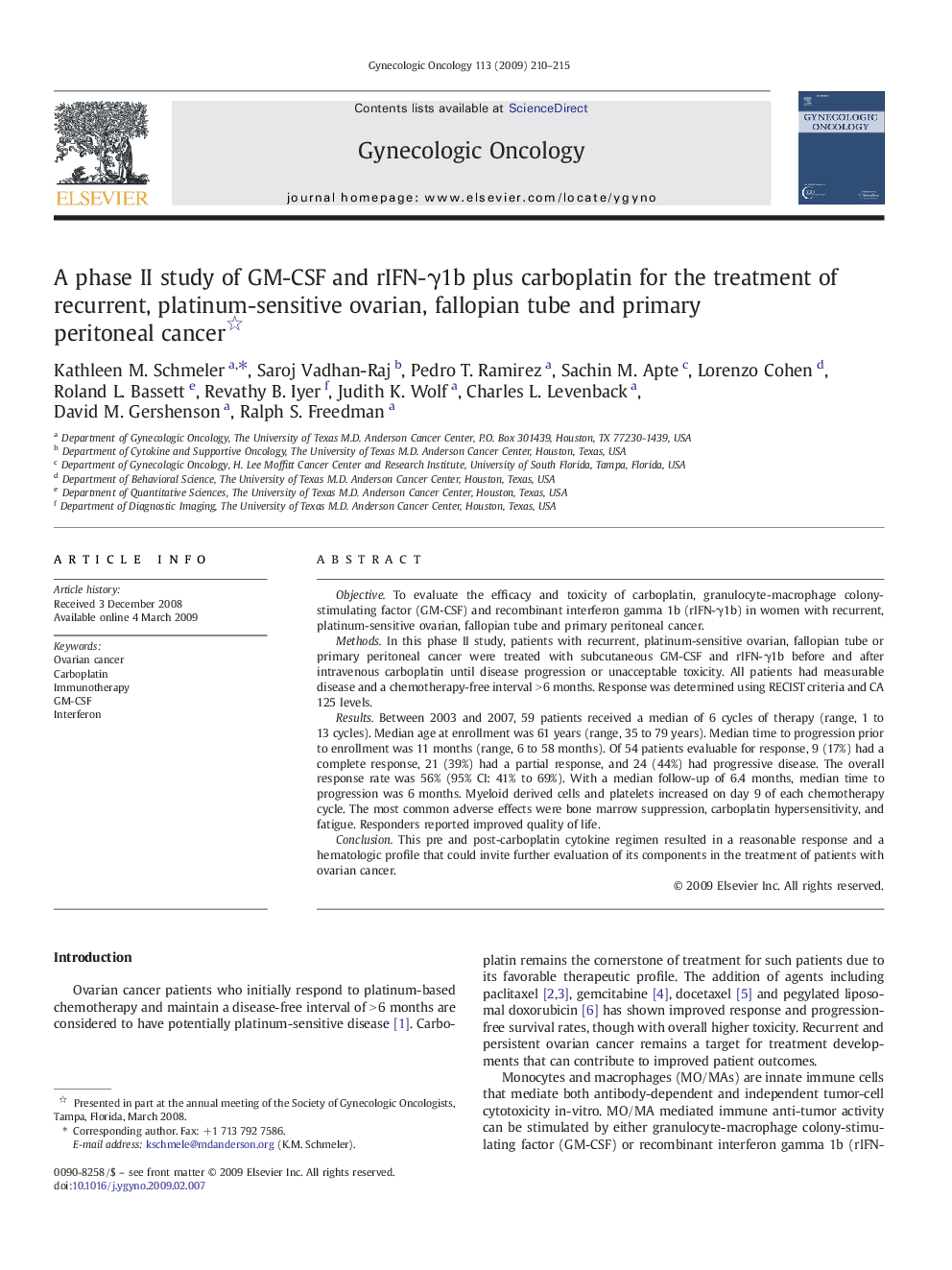| Article ID | Journal | Published Year | Pages | File Type |
|---|---|---|---|---|
| 3943333 | Gynecologic Oncology | 2009 | 6 Pages |
ObjectiveTo evaluate the efficacy and toxicity of carboplatin, granulocyte-macrophage colony-stimulating factor (GM-CSF) and recombinant interferon gamma 1b (rIFN-γ1b) in women with recurrent, platinum-sensitive ovarian, fallopian tube and primary peritoneal cancer.MethodsIn this phase II study, patients with recurrent, platinum-sensitive ovarian, fallopian tube or primary peritoneal cancer were treated with subcutaneous GM-CSF and rIFN-γ1b before and after intravenous carboplatin until disease progression or unacceptable toxicity. All patients had measurable disease and a chemotherapy-free interval > 6 months. Response was determined using RECIST criteria and CA 125 levels.ResultsBetween 2003 and 2007, 59 patients received a median of 6 cycles of therapy (range, 1 to 13 cycles). Median age at enrollment was 61 years (range, 35 to 79 years). Median time to progression prior to enrollment was 11 months (range, 6 to 58 months). Of 54 patients evaluable for response, 9 (17%) had a complete response, 21 (39%) had a partial response, and 24 (44%) had progressive disease. The overall response rate was 56% (95% CI: 41% to 69%). With a median follow-up of 6.4 months, median time to progression was 6 months. Myeloid derived cells and platelets increased on day 9 of each chemotherapy cycle. The most common adverse effects were bone marrow suppression, carboplatin hypersensitivity, and fatigue. Responders reported improved quality of life.ConclusionThis pre and post-carboplatin cytokine regimen resulted in a reasonable response and a hematologic profile that could invite further evaluation of its components in the treatment of patients with ovarian cancer.
